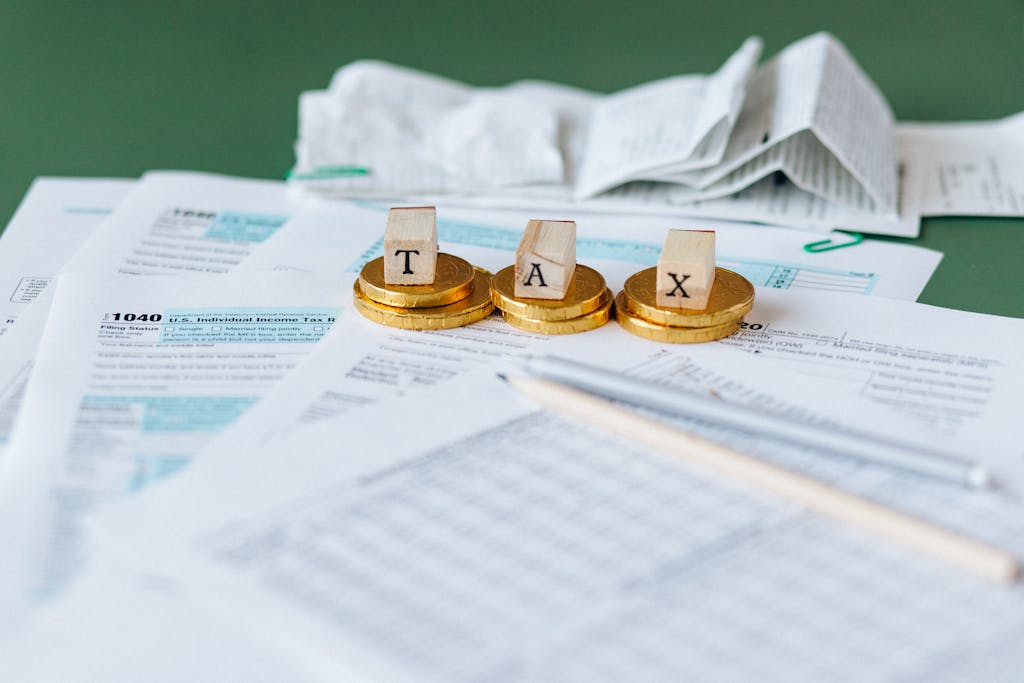
BY
|
Your Guide to Saving Money on Fuel in Australia with Fuel Tax Credit
When running a business, you’re always looking for ways to reduce costs and maximise your bottom line. One often overlooked opportunity is claiming fuel tax credits. Diesel fuel, being a significant part of fuel expenses for many businesses, plays a big role in this context.
So, by understanding how fuel tax credits work and following the proper procedures, you can significantly reduce your fuel expenses and keep more money in your business.
What are Fuel Tax Credits?
The Australian Taxation Office (ATO) manages a program around fuel tax credits. This program helps businesses save money on their fuel costs by giving them back some of the taxes they’ve paid on fuel purchases. Essentially, it’s a refund system that reduces the overall expense of fuel for eligible businesses.
Whether your business is involved in manufacturing, importing, or transporting goods, you can claim these credits through your Business Activity Statement (BAS). This lets you lower your operational costs and improve your bottom line.
How to Qualify for Fuel Tax Credits
To be eligible for fuel tax credits, your business must meet the following criteria:
- Registered for Goods and Services Tax (GST)
- Registered for fuel tax credits
- Use eligible fuel types for eligible activities
Most fuel types are eligible, including diesel, petrol, LPG, LNG, and CNG. However, the activities you use the fuel for will determine your eligibility and the amount you can claim.
Eligible activities include:
- Powering machinery, plant, and equipment
- Fuelling heavy vehicles (over 4.5 tonnes gross vehicle mass)
- Running light vehicles travelling off public roads or on private roads
- Operating auxiliary equipment of a heavy vehicle (e.g., refrigeration units, pumps)
Businesses claiming less than $10,000 annually can use simplified fuel tax credits for easier calculations.
Keep in mind that fuel used in light vehicles (4.5 tonnes or less) travelling on public roads is not eligible for fuel tax credits.
Environmental and Vehicle Criteria
To qualify for fuel tax credits, businesses must meet specific environmental and vehicle criteria. Vehicles manufactured on or after 1 January 1996 are generally eligible.
Additionally, businesses can fulfil the requirements by adhering to accredited audited maintenance programs or following the manufacturer’s maintenance schedules. Maintaining detailed records of your fuel purchases and usage is crucial to verify your claim. This ensures that your business complies with the ATO’s guidelines and maximises its fuel tax credit benefits.
Fuel Tax Credit Rates
The amount you can claim in fuel tax credits depends on several factors, including the fuel type, when you acquired it, and how it’s used in your business. Rates change regularly, usually twice a year (in February and August), so it’s essential to use the current rates when calculating your claim.
Here’s a table of the current fuel tax credit rates (as of 1 July 2023):
| Fuel Type | Heavy vehicles on public roads | All other business uses |
| Liquid fuels (e.g., diesel, petrol) | 20.8 cents per litre | 49.6 cents per litre |
| LPG | 0 cents per litre | 16.2 cents per litre |
| LNG or CNG | 0 cents per kilogram | 34.0 cents per kilogram |
Remember, these rates can change, so always check the ATO website for the most current information.
Claiming Fuel Tax Credits
To claim fuel tax credits, follow these steps:
- Register: If you’re not already registered for fuel tax credits, you can do so when registering for GST or by contacting the ATO directly.
- Record-keeping: Maintain detailed records of your fuel purchases and usage, including the date of purchase, fuel type and quantity, and how the fuel was used in your business.
- Calculate: Use the ATO’s fuel tax credit calculator to determine the amount you can claim based on your fuel usage and the current rates.
- Lodge: Claim fuel tax credits on your Business Activity Statement (BAS).
Record-Keeping and Maintenance
Accurate record-keeping is important when claiming fuel tax credits. Businesses must maintain comprehensive records of their fuel purchases, usage, and maintenance activities.
The ATO provides clear guidelines on the environmental criteria and the necessary documentation. You can use templates or any system that offers a similar level of detail to keep track of your records.
Maintenance schedules should have started no later than 1 July 2006, and it’s important to record the odometer reading of your vehicles as of that date to determine the required maintenance intervals. Proper record-keeping helps your claims and ensures compliance with tax regulations.
Road User Charge and Fuel Tax
The Road User Charge is a mechanism designed to recover part of the road construction and maintenance costs attributed to heavy vehicles. This charge is recovered by reducing the fuel tax credit on each litre of fuel used by eligible heavy vehicle operators.
The current fuel tax credit rate can be found on the Australian Tax Office website. Established by the Fuel Tax Act 2006, the Road User Charge requires businesses to understand its impact on their fuel tax credits.
Maximising Your Fuel Tax Credits
To get the most out of the fuel tax credit scheme:
- Regularly review your fuel usage to ensure you’re claiming for all eligible activities.
- Consider using fleet management software to track fuel consumption accurately.
- Stay informed about rate changes and updates to the fuel tax credit scheme.
- Consult with a tax professional to ensure you maximise your claims within the rules.
Changes to Fuel Tax Credits in 2023-24
The Australian government has announced changes to the fuel tax credit scheme in the 2023-24 budget. From 1 July 2023, the heavy vehicle road user charge will increase by 6% annually over three years. This change will affect the fuel tax credit rates for heavy vehicles travelling on public roads.
Key Takeaways
- Fuel tax credits can significantly reduce fuel costs for eligible businesses.
- Eligibility depends on your business type, fuel type, and how the fuel is used.
- Rates change regularly, so always check the current rates before claiming.
- Accurate record-keeping is crucial for successful claims.
- Stay informed about changes to the scheme to maximise your benefits.
Frequently Asked Questions
Can I claim fuel tax credits for fuel used in my personal vehicle for business purposes?
If you use a light vehicle (4.5 tonnes or less) off public roads or on private roads for business purposes, you may be eligible to claim fuel tax credits for that usage. However, fuel used in light vehicles travelling on public roads is not eligible, even if used for business purposes.
How often do fuel tax credit rates change?
Fuel tax credit rates usually change twice a year, on 1 February and 1 August, in line with the consumer price index (CPI). However, rates can also change at other times due to government decisions or legislative changes. Always check the current rates when making a claim.
What records must I keep to support my fuel tax credit claims?
Keep records that show the amount and type of fuel you acquired, the date of purchase, and how the fuel was used in your business. These records can include fuel receipts, logbooks, GPS records, and any other documentation that supports your fuel usage and business activities.
Can I claim fuel tax credits retrospectively?
Yes, you can claim fuel tax credits for up to four years after the end of the tax period in which you acquired the fuel. However, claiming credits in the same BAS period you acquire the fuel is generally easier, as you’ll have all the necessary information readily available.
How do I calculate fuel tax credits for vehicles on and off public roads?
You’ll need to apportion your fuel use for vehicles used on and off public roads. Keep a logbook or use GPS tracking to record on-road and off-road travel, calculate the percentage of fuel used off-road, and apply the appropriate fuel tax credit rate to the off-road portion. The ATO provides guidance and tools to help with these calculations; in some cases, you may be able to use simplified methods.
While this guide provides a comprehensive overview of fuel tax credits in Australia, tax laws can be complex and subject to change. Always consult with a tax professional or the ATO directly for advice specific to your business situation.



